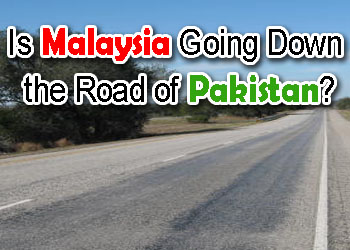By Farish A. Noor
A word, once uttered, can seldom be withdrawn. This is true for most of us and particularly true for politicians who forget that we now live in an age of modern communications technology where every sentence, every utterance, even every burp, hiccup and indiscreet bodily emission will be recorded for posterity.
What has now become a maxim of politics was amply demonstrated recently by the remarks of the Deputy Prime Minister of Malaysia, Najib Tun Razak, who claimed during a press conference in Kuala Lumpur that Malaysia is an ‘Islamic state’ that has ‘never been affiliated’ to a secular position and that that Malaysia’s development ‘has been driven by our adherence to the fundamentals of Islam’. (Bernama, 17 July 2007) Needless to say, the Deputy Prime Minister’s remarks were a cause of concern for many Malaysians who — for the past fifty years or so — have been living under the assumption that the country was a constitutional democracy and not a theocratic state.
In due course protests issued from all quarters, ranging from the Malaysian urban liberal elite to the leaders of the mainly non-Malay non-Muslim parties of the country; demanding clarification on the issue and a re-statement of the fundamentally secular basis of Malaysia’s politics. As public frustration increased, the Malaysian government reacted as it is wont to do. While the Malaysian Prime Minister is on holiday in Australia, the government issued a blanket media ban on all discussion of the matter, on the grounds that it can only lead to even more public anger and misunderstanding between the racial and religious communities of the country; despite the fact that the source of the misunderstanding and discomfort was the Deputy Prime Minister’s remarks in the first place.
Notwithstanding the overt ban on media discussion of the Islamic state issue, however, Malaysia’s internet community has been active in keeping the question alive and well on dozens of websites and blogs all over the country. Indeed as developments over the past few years have shown, it is the internet where most of the really interesting and meaningful political discussions have been and are taking place. Continue reading “Another Malaysian Messenger in the Firing Line”

